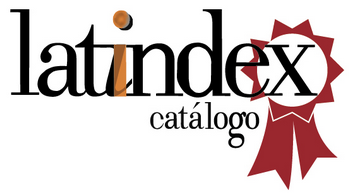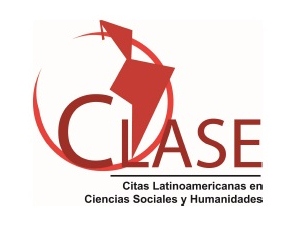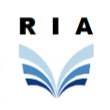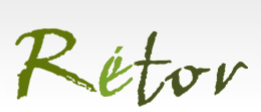Para una teoría del texto argumentativo
Resumen
Este trabajo presenta un esbozo de una teoría del texto argumentativo lo más explícita posible. Tras formular los principios de esa teoría, se exponen algunos elementos de la “lógica de pregunta y respuesta” de R. G. Collingwood para servir de intermediario entre aquellos principios y su aplicación a textos argumentativos concretos. Para ilustrar dicha aplicación se ha elegido un texto breve, pero argumentativamente completo, tomado de un libro reciente del físico Frank Wilczek. Finalmente, se discuten tres preguntas que suscita la teoría: (a) qué clase de teoría es la expuesta y cuál es el lugar que ocupa en relación con las teorías de la argumentación al uso; (b) cuál es el nivel de detalle apropiado para el análisis de textos argumentativos; (c) hasta dónde puede considerarse útil una teoría de este tipo, especialmente de cara a los textos argumentativos de la esfera “tecnica” (Goodnight 1982), usuales tanto en la academia como en los círculos profesionales.Citas
Anscombre, J.-C. y Ducrot, O. (1983). L’argumentation dans la langue. Bruselas: Mardaga.
Barth, E. M. y Krabbe, E. C. W. (1982). From axiom to dialogue: A philosophical study of logics and argumentation. Berlín: Walter de Gruyter.
Beardsley, M. C. (1950). Practical logic. Nueva York: Prentice-Hall.
Black, M. (1946). Critical thinking: An introduction to logic and scientific method. Englewood Cliffs, NJ: Prentice-Hall.
Blair, J. A. (2012). Groundwork in the theory of argumentation: Selected papers. Dordrecht: Springer.
Bowell, T., Kemp, G. y Cowan, R. (2020). Critical thinking: A concise guide. 5ª edición. Londres: Routledge.
Carel, M. y Ducrot, O. (2005). La semántica argumentativa: Una introducción a la teoría de los bloques semánticos. Buenos Aires: Ediciones Colihue. [Las conferencias fueron originalmente dictadas en 2002.]
Carlino, P. (2005). Escribir, leer y aprender en la universidad. Buenos Aires: Fondo de Cultura Económica.
Collingwood, R. G. (1924). Speculum mentis, or the map of knowledge. Oxford: Clarendon Press.
Collingwood, R. G. (1939). An autobiography. Oxford: Clarendon Press.
Collingwood, R. G. (1940). An essay on metaphysics. Oxford: Clarendon Press.
Daremberg, C. y Ruelle, C. É., coords. (1879). Œuvres de Rufus d’Éphèse. París: Imprimerie Nationale.
Donnellan, K. S. (1966). Reference and definite descriptions. The Philosophical Review 75 (3), 281–304.
Ducrot, O. (2004). Argumentation rhétorique et argumentation linguistique. En S. Moirand y M. Doury (coords.), L’argumentation aujourd’hui: Positions théoriques en confrontation. París: Presses Sorbonne Nouvelle. <http://books.openedition.org/psn/748>
Ducrot, O. (2009). Slovenian lectures: Introduction to argumentative semantics. Ljubljana: Pedagoški Inštitut. [Las conferencias fueron originalmente dictadas en 1991.]
Eemeren, F. H. van (2010). Strategic maneuvering in argumentative discourse: Extending the pragma-dialectical theory of argumentation. Amsterdam: John Benjamins.
Eemeren, F. H. van (2018). Argumentation theory: The pragma-dialectical perspective. Cham: Springer.
Eemeren, F. H. van, Garssen, B., Greco, S., Haaften, Ton van, Labrie, N., Leal, F. y Wu, P. (2022). Argumentative Style: A Pragma-Dialectical Study of Functional Variety in Argumentative Discourse. Amsterdam: John Benjamins.
Eemeren, F. H. van y Grootendorst, R. (1983). Speech acts in argumentative discussions. Dordrecht: Foris.
Eemeren, F. H. van y Grootendorst, R. (1992). Argumentation, communication, and fallacies: A pragma-dialectical perspective. Londres: Routledge.
Eemeren, F. H. van y Grootendorst, R. (2004). A systematic theory of argumentation: The pragma-dialectical approach. Nueva York: Cambridge University Press.
Eemeren, F. H. van, Grootendorst, R., Jackson, S. y Jacobs, S. (1993). Reconstructing argumentative discourse. , ALloosa: University of Alabama Press.
Fahnestock, J. (1999). Rhetorical figures in science. Nueva York: Oxford University Press.
Freeman, J. B. (1991). Dialectics and the macrostructure of arguments: A theory of argument structure. Berlín: Foris.
Gascón, J. Á. (2023). Tras la diferencia entre argumentación y explicación. Theoria 38 (1), 87–105.
Gigerenzer, B. (1993). The superego, the ego and, the id in statistical reasoning. En G. Keren y C. Lewis, coords., A handbook for data analysis in the behavioral sciences: Mthodological issues, pp. 311–339. Hillsdale, NJ: Lawrence Erlbaum.
Gilbert, M. A. (1979). How to win an argument. Nueva York: McGraw-Hill.
Gilbert, M. A. (1997). Coalescent argumentation. Mahwah, NJ: Lawrence Erlbaum.
Gilbert, M. A. (2014). Arguing with people. Peterborough, ON: Broadview Press.
Givón, T. (2021). Coherence. Amsterdam: John Benjamins.
Goodnight, G. T. (1982). The personal, technical, and public spheres of argument: A speculative inquiry into the art of public deliberation. Argumentation and Advocacy 18 (4), 214–227.
Groarke, L. (2015). Going multimodal: What is a mode of arguing and why does it matter? Argumentation 29 (2), 133–155.
Gross, A. G. y Harmon, J. E. (2015). Science from sight to insight: How scientists illustrate meaning. Chicago: University Press.
Gross, A. G. Harmon, J. E. y M. Reidy (2002). Communicating science: The scientific article from the 17th century to the present. Nueva York: Oxford University Press.
Halliday, M. y Hasan, R. (1976). Cohesion in English. Londres: Longman.
Hamblin, C. L. (1970). Fallacies. Londres: Methuen.
Johnson, R. H. (2000). Manifest rationality: A pragmatic theory of argument. Mahwah, NJ: Lawrence Erlbaum.
Johnson, R. H. (2014). The rise of informal logic: Essays on argumentation, critical thinking, reasoning and politics. Windsor, ON: Windsor Studies in Argumentation, 2.
Johnson, R. H. y Blair, J. A. (1977). Logical self-defense. Toronto: McGraw-Hill Ryerson.
Kahane, H. (1983). Thinking about basic beliefs: An introduction to philosophy. Belmont, CA: Wadsworth.
Kahane, H. (1984). Logic and contemporary rhetoric: The use of reason in everyday life. 4ª edición. Belmont, CA: Wadsworth.
Leal Carretero, F. (2021). Teoría(s) de la argumentación. Diálogo filosófico 111, 350–379.
Leal, F. (2022). Is natural selection in trouble: When emotions rise high in a philosophical debate. Argumentation 36 (4), 455–479.
Leal Carretero, F. (2023). El diagnóstico etiológico como discusión crítica. Revista Iberoamericana de Argumentación 27, 101–133.
Leal, F. (2024). Collingwood’s logic of question and answer: Connecting the dots. En D. Collins y C. Williams (coords.), Interpreting Collingwood. Cambridge: University Press.
Leal, F. y Marraud, H. (2022). How philosophers argue: An adversarial collaboration on the Russell–Copleston debate. Cham: Springer.
Leal Carretero, F. y Suro Sánchez, J. (2022). ¿Cómo se lee esto? ¿Cómo se escribe esto? En C. Mayorga Madrigal, R. Rodríguez Monsiváis y F. Leal Carretero (coords.), ¿Es ese un buen argumento?, pp. 201-215. Guadalajara: CUCSH/Universidad de Guadalajara.
Marraud, H. (2013). ¿Es lógic@? Análisis y evaluación de argumentos. Madrid: Cátedra.
Marraud, H. (2020). En buena lógica: Una introducción a la teoría de la argumentación. Guadalajara: Editorial UdeG.
Marraud, H. (2023). ¿Qué es la dialéctica de los argumentos? Quadripartita Ratio 8 (15), 1–27.
Marrou, H.-I. (1960). Histoire de l’éducation dans l’antiquité. 5ª edición revisada y aumentada. París: Éditions du Seuil.
McCloskey, D. N. (1985). The loss function has been mislaid: The rhetoric of significance tests. The American Economic Review 75 (2), 201–205.
Oakeshott, M. (1939). The social and political doctrines of contemporary Europe. Cambridge: University Press.
Puppo, F., coord. (2019). Informal logic: A ‘Canadian’ approach to argument. Windsor, ON: Windsor Studies in Argumentation, 9.
Russell, B. (1903). The principles of mathematics. Cambridge: University Press.
Russell, B. (1905). On denoting. Mind 14 (56), 479–493.
Tindale, C., coord. (2022). Special Issue: Michael Gilbert’s Multi-Modal Argumentation. Informal Logic 42 (3), 485–652.
Toulmin, S. (1958). The uses of argument. Cambridge: University Press.
Toulmin, S., Rieke, R. y Janik, A. (1978). An introduction to reasoning. Nueva York: Macmillan.
Walton, D. N. y Krabbe, E. C. W. (1995). Commitment in dialogue: Basic concepts of interpersonal reasoning. Albany, NY: State University of New York.
Watson, J. C., Arp, R. y King, S. (2024). Critical thinking: An introduction to reasoning well. 3ª edición. Londres: Bloomsbury.
Wilczek, F. (2008). The lightness of being: Mass, ether, and the unification of forces. Nueva York: Basic Books.
Willingham, D. T. (2008). Critical thinking: Why is it so hard to teach? Arts Education Policy Review 109 (4), 21–32.
Zarefsky, D. (2014). Rhetorical perspectives on argumentation. Cham: Springer.
Ziliak, S. T. y McCloskey, D. N. (2008). The cult of statistical significance. Ann Arbor: The University of Michigan Press.
Una vez que un texto es aceptado para su publicación en Quadripartita Ratio, sus autores deben firmar dos documentos de carácter legal: una Licencia de uso y una Declaración de autoría.
Con la Licencia de uso, los autores autorizan la publicación de su obra y la difusión de ésta (integración en bases de datos, difusión en nuestras redes sociales, reediciones posibles, etc.). No obstante, se autoriza la descarga, reproducción y distribución de todos nuestros contenidos publicados, siempre que no se modifique el contenido y se indique su origen (nombre de la revista, volumen, número, páginas y dirección electrónica del documento).
Con la Declaración de autoría, los autores manifiestan que la obra es de su autoría, original e inédita.









